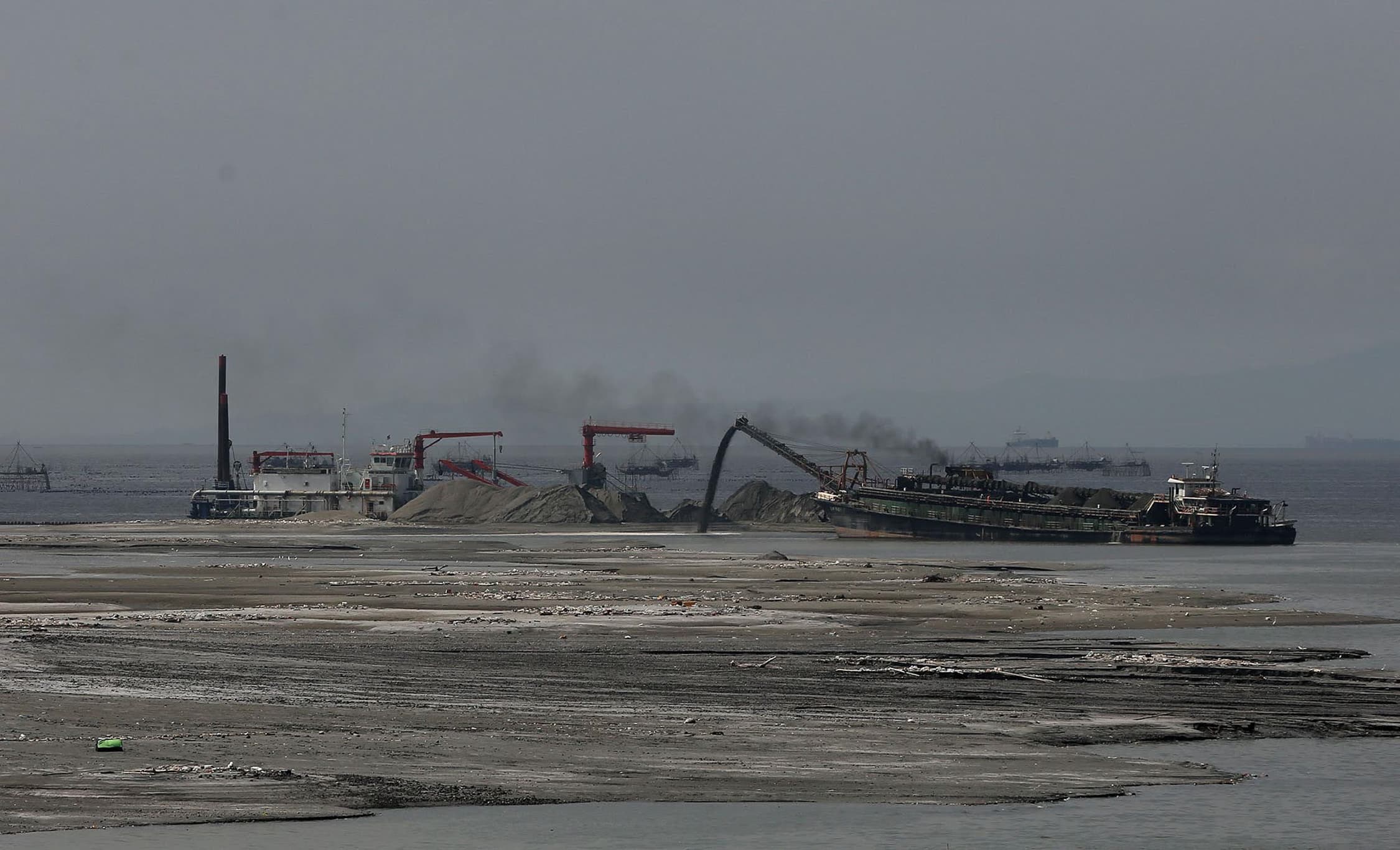Fisherfolk to SC: Void Manila Bay reclamation works

LEGAL RECOURSE Citing the adverse effects of reclamation projects on the environment, members of Pamalakaya, along with Kalikasan, asked the high tribunal to nullify all reclamation permits in Manila Bay. —Richard A. Reyes
MANILA, Philippines — Before the start of reclamation projects in Manila Bay, fishermen Teodoro Escarial, Oscar Benosa, Rogelio Mendoza, and Romeo Miranda earned an average of up to P1,000 from fishing and harvesting shellfish every day.
However, their daily income plummeted to less than P500 when the Philippine Reclamation Authority (PRA) approved 13 of 25 reclamation applications in Manila Bay, with the Department of Environment and Natural Resources (DENR) clearing these projects between 2020 and 2023.
Due to these projects, Escarial said he observed a significant deterioration in Manila Bay, with its waters becoming murky with traces of soil and silt.
READ: Resumption of 2 reclamation projects cheered, jeered
“The shellfish we harvest are already opening on their own because of the poor condition of the water,” he said in an affidavit.
‘Clearly illegal’
Despite President Ferdinand Marcos Jr. imposing a moratorium on reclamation activities pending a cumulative impact assessment to be conducted by the DENR, the fisherfolk said they cannot feel at ease until the projects are fully halted.
According to them, the reclamation works are “clearly illegal and have caused widespread damage to the environment and the livelihoods of fishermen.”
On Wednesday, fisherfolk and environmental groups Pamalakaya and Kalikasan asked the Supreme Court to issue a writ of kalikasan and continuing mandamus as they sought to nullify all reclamation permits and environmental compliance certificates issued to companies involved in bay reclamation projects.
A petition for a writ of kalikasan seeks to protect the constitutional right to a balanced and healthy ecology by addressing environmental harm affecting multiple communities.
On the other hand, a petition for continuing mandamus compels a government agency or official to perform an ongoing environmental duty to be neglected or refused.
The groups, which included playwright Bonifacio Ilagan and Bishop Gerardo Alminaza, noted that their petition coincides with the DENR’s plan to release its cumulative impact assessment of these projects by year-end.
Respondents
Named respondents in the case were the DENR and the PRA, the two agencies primarily responsible for granting clearances for the reclamation projects.
In their 73-page petition, the groups urged the Supreme Court to order the respondents to stop processing applications for reclamation and seabed quarrying in Manila Bay.
They further sought payment for the damage incurred by fisherfolk due to the respondents’ “malicious neglect to perform their duties” and called for the rehabilitation of coastal communities affected by the projects.
Lost income
Based on their computation, the fishermen said each of them lost P500 daily between 2020 and 2023, or P182,500 yearly, or P730,000 per person over the four years.
They also accused the government agencies of neglecting to create a national or regional reclamation and development plan before issuing permits, in violation of their mandates, which resulted in environmental harm and livelihood losses.
“Mitigation measures, if any, cannot be said [to be] in place. Development is not balanced with environmental protection, and the environmental impacts are now causing hardships to fisherfolk and Filipinos in general,” they said.